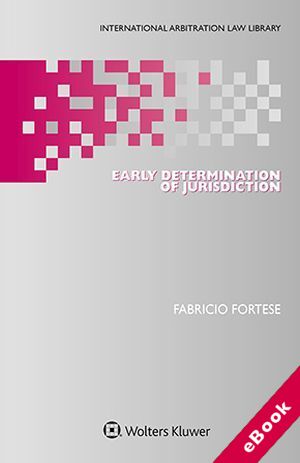
The device(s) you use to access the eBook content must be authorized with an Adobe ID before you download the product otherwise it will fail to register correctly.
For further information see https://www.wildy.com/ebook-formats
Once the order is confirmed an automated e-mail will be sent to you to allow you to download the eBook.
All eBooks are supplied firm sale and cannot be returned. If you believe there is a fault with your eBook then contact us on ebooks@wildy.com and we will help in resolving the issue. This does not affect your statutory rights.
Early Determination of Jurisdiction, which focuses on Article 8(1) of the UNCITRAL Model Law on International Commercial Arbitration, thoroughly examines the pivotal issue of whether national courts should (or could) conclusively settle jurisdictional disputes before or after the arbitrators have determined jurisdiction. In other words, the question of when a court should exercise its authority with conclusive effects. The interpretation and application of the competence-competence principle are not uniform across jurisdictions. Conflicting approaches – to the extent, effects, and consequences of permitting an arbitral tribunal to decide on its own jurisdiction and the proper timing for judicial involvement – rest upon significant theoretical and policy concerns that have practical implications.
The analysis covers the following salient issues and aspects:
Article 8(1) of the Model Law is analysed according to its interplay with other provisions of the same instrument and the New York Convention.
As a nuanced, deeply informed approach to interpreting national arbitration statutes that adopt the UNCITRAL Model Law, this book will help practitioners and judges approach judicial disputes over arbitral jurisdiction with full awareness of applicable rules and principles in an arbitration-friendly fashion. It provides matchless guidance through the intricacies of early determination of jurisdiction by balancing the legitimacy, efficacy, and efficiency of arbitration. For academics and policymakers, it will contribute to an ongoing paradigm shift away from state law and methodological nationalism towards transnational legal pluralism.